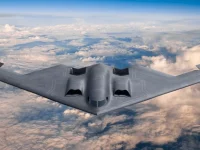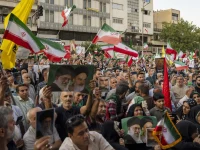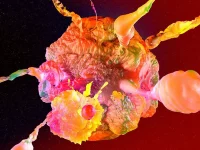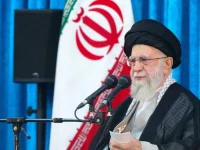Middle East. Rouhani’s chief of staff: More US-Iran anti-terrorism cooperation possible

NEW YORK — Further cooperation between the United States and Iran on fighting terrorism in the region could be possible if the United States fulfills its commitments in the Iran nuclear deal to lift sanctions, Iranian President Hassan Rouhani’s chief of staff told Al-Monitor.
The Iranian president’s chief of staff, Mohammad Nahavandian, tells Al-Monitor that the implementation of the nuclear deal will be a test of the West’s sincerity.
“This nuclear negotiations and agreement serves not only for the purpose of putting aside this obstacle, but also serves as a test whether this line of negotiations can bring about some level of confidence and trust between two sides,” the chief of staff, Mohammad Nahavandian, told Al-Monitor in an interview in New York on Sept. 26. “And it was mentioned by the supreme leader [Ayatollah Ali Khamenei] as well that this nuclear issue is a test for us: to see how the other side is sincere in following up and in the true implementation of what is being agreed.”
“We have to see whether the implementation stage can bring about some level of trust,” Nahavandian said.
A US-educated economist, Nahavandian has previously served as the president of Iran’s Chamber of Commerce, Industry and Mines, as deputy secretary of Iran’s Supreme National Security Council under Ali Larijani and as deputy minister of commerce. He spoke to Al-Monitor in New York on the sidelines of the UN General Assembly, which Rouhani and Obama as well as Russian President Vladimir Putin are scheduled to address the morning of Sept. 28.
US Secretary of State John Kerry, at the top of his meeting with Iranian Foreign Minister Mohammad Javad Zarif on Sept. 26, said the United States would like to discuss Syria with Iran. « I view this week as a major opportunity for any number of countries to play an important role in trying to resolve some of the very difficult issues of the Middle East,” Kerry said at his first meeting with Zarif since they reached the final Iran nuclear deal in Vienna on July 14. “We need to achieve peace and a way forward in Syria, in Yemen … and I think there are opportunities this week, through these discussions, to make some progress.”
Nahavandian said Iran’s leadership would be looking to the first phase of implementation to see if the other side fulfills its obligations. “For the Iranian people to see the lift of sanctions can bring about some tangible results. That would be a show of sincerity,” Nahavandian said. “So that does not need to take that long.”
He said, “And there are some issues of mutual interest, especially in the region. The position of the Islamic Republic of Iran has always been that fighting terrorism should come as the first priority for regional issues. And that can be another platform if the sincerity of all sides can be shown in action.”
Nahavandian said Iranians have been watching the US debate about the Iranian nuclear deal and the US presidential campaign with a mix of bemusement and concern. Regarding threats by some Republican presidential candidates that they would tear up the Iran nuclear deal, Nahavandian said such threats are costly for the United States, and not just in Iran.
“Nations don’t make jokes in their international relations,” Nahavandian said. “If there is an agreement between two big nations, … people would count on those agreements. And if things can suddenly change, then the whole calculation in relations between nations has to be reviewed.”
“I think the cost of that kind of abrupt change of policy would be huge for the whole international community,” he said. “Let’s assume that kind of nonsense would not prevail.”
Following is a transcript of the interview, which has been lightly edited for length and clarity:
Al-Monitor: Dr. Nahavandian, you came to the last round of Iran nuclear negotiations in Vienna in July, which you had not done before. Can you talk about your role in those final deal consultations? We heard various theories … that you might be there to ensure Iran’s business community interests, and in particular that you might be ensuring what steps the US and EU would need to be taking to prepare the ground for sanctions relief on implementation day.
Nahavandian: Yes, one important part of the deal (is to) lift sanctions and removal of the sanctions regime overall. So from the beginning, there was a committee in charge of that economic aspect of negotiations. And it was agreed that in the last round of negotiations, after Lausanne, there should be a conclusion of economic issues before going into the details of the final round on technical issues.
And our team, our economic team, were very engaged in putting down all of the details of this economic aspect and there were some issues that have to be decided. And that was the reason for that short visit that I made. Actually, when the fifth appendix was concluded, that actually gave the way to other appendices, and technical issues in the main document as well.
Al Monitor: Like others in the Rouhani administration who have been educated abroad, you spent many years in the US. We have even seen speculation in the Iranian press in the past that you were at one time possibly a US green-card holder, or possibly even a dual citizen. Can you clarify, if you were ever a green-card holder or US citizen, and if that status has changed?
Nahavandian: That goes back to the time that I was engaged in a lot of research and academic activities here. There never was any issue of dual citizenship. That was a fabrication. And when I decided to go back, and I had some political positions and responsibilities, naturally, that status could not be continued.
Al-Monitor: There were even rumors that during the Bush administration you were perhaps coming to Washington to see about a dialogue with Washington. Is that accurate?
Nahavandian: No. It was a time that Dr. Zarif was in charge of our mission here in the UN and there was a need for close consultation at the time. And that visit was for that purpose. And it was concluded in that few days.
Al-Monitor: President Rouhani, when he visited the UN last year, said that he and US President Obama agreed in their 2013 phone call that they should get the Iran nuclear agreement first before possibly discussing other issues. And I very much like the line Rouhani said he told Obama, in Persian, that translated something like: « Let’s raise the baby we already have before we move onto the second. »
(Nahavandian laughs.)
Al-Monitor: And Obama agreed. So now the parties have reached a nuclear deal, and are moving toward implementation. Secretary Kerry said he would like to talk about Syria with Iran, potentially bringing Iran into regional discussions. What do you see as the prospects for that?
Nahavandian: What you mentioned is correct. This nuclear negotiations and agreement serve not only for the purpose of putting aside this obstacle, but also serve as a test whether this line of negotiations can bring about some level of confidence and trust between two sides. And it was mentioned by the supreme leader as well that this nuclear issue is a test for us: to see how the other side is sincere in following up and in the true implementation of what is being agreed.
So, as you mentioned, it is only an agreement now. We have to see whether the implementation stage can bring about some level of trust.
Al-Monitor: It is a 15-year agreement. Parts of the agreement are for 15 years. Do we have to wait that long, or you think earlier in the implementation phase …
Nahavandian: Of course, the first phase of implementation, which is the lift of sanctions. It has gone well so far. With the fact that the UN Security Council resolution is adopted. And for the Iranian people to see the lift of sanctions can bring about some tangible results. That would be a show of sincerity. So that does not need to take that long. And there are some issues of mutual interest, especially in the region. The position of the Islamic Republic of Iran has always been that fighting terrorism should come as the first priority for regional issues. And that can be another platform if the sincerity of all sides can be shown in action.
Al-Monitor: Do you think the sanctions relief from the nuclear deal —
Nahavandian: Sanctions, lift of sanctions —
Al-Monitor: Lift will come quickly enough for Rouhani’s political allies to gain in the upcoming parliamentary elections, in February?
Nahavandian: To us, this nuclear issue is not a partisan issue. It is a national position that almost everybody shares. So it is not something to be subject to partisan stance and political competition. The position which is being stated by President Rouhani is the nation’s position. And it should not come to be subject of different competition. However, whenever people go to polls, of course they make their choice according to the assessment that they have of the performances of this group or that party, and no one can stop people from judging at the time that they want to make a choice.
Al-Monitor: Many of the demands brought up by the supporters of the Rouhani administration, including calls for a less restrictive political climate, have been held at bay during the past two years of nuclear negotiations. With a deal in hand, what do you think happens to those expectations? Do you think the Rouhani administration will invest more of its capital in meeting those demands?
Nahavandian: As the saying goes, first things come first. The new administration set very clear for itself that there are two priorities to take care of. One is the management of the macro-economy in the country, bringing back the stability to Iran’s economy. And the second was the lift of sanctions and bringing this nuclear issue to an end.
And it has been a success story on both fronts. The sanctions have not been lifted yet, but the government was able to bring down the inflation rate more than 25% in less than two years. That was a kind of an achievement. And that actually sent a strong message to the negotiating table a well: that despite the continuation of sanctions, the new administration is able to manage the economy, bring inflation down, and turn the negative growth to positive growth.
So, continuation of sanctions would not be a path for the other side to follow.
Now that both of these issues have been taken care of, of course the result of a better situation in the economy, and the feeling of people that when they voted for hope, that hope has been strengthened now. Of course the government would have more time to come to other priorities. For example, the environmental issues. The water resource problem is a very serious problem in Iran. We have this problem of drug trafficking which comes from the east of the country, from Afghanistan and other places. That is a major issue. We have this very important problem of unemployment, which has been accumulated during past years. Major investment is needed for that to bring about more jobs for young people. We have many educated people coming out of universities.
So there are other priorities which come on top of the list, including some social issues, including some domestic politics. Of course, all of the promises which were made during the campaign have to be taken care of.
Al-Monitor: You mentioned the economy. As an economist and former head of the Iranian chamber of commerce, what are the main challenges that you see ahead for the Iranian economy?
Nahavandian: The Iranian economy has a lot of potential. We have one of the most educated human capital in the region. We have one of the richest natural resources when it comes to energy, for example. Oil and gas put together, Iran is number one in the world. However, translating all of this potential to real results needs a lot of investment. So that is one of the main challenges. We are very hopeful that, in the aftermath of this nuclear deal, we can bring about an atmosphere and business environment which is investment friendly to create jobs.
And also the geographical location of Iran can turn Iran as a hub for transportation, for energy, for aviation, for mining. These potentials can come to real effect if, for example, our railway system is being connected to neighboring countries. That has been one of the priorities for the new administration. And in last two years, Iran has been connected to Turkmenistan and through Turkmenistan to China. This year we are hopeful that Iran’s railway system will be connected to Afghanistan. That would give us another route to China. Again, Iran will be connected to the Iraqi railway system. So this connection between north and south, east and west, through Iranian railway system, will give the Iranian economy a lift.
Of course, in oil and gas sector, in energy sector in general, we have very ambitious plans for new investments, new capacity which will absorb a lot of capital. At the same time, our petrochemical industry has a lot of potential. Our auto industry has been one of the biggest in the region, and we have a lot of plans for modernization of that industry as well.
In the mining industry, we think of a regional development, not only for Iranian economy, but with the neighboring countries as well. In mining, the political borders do not mean much. So we are seriously thinking about the development of those resources in joint ventures with Afghanistan, with Iraq, for example, and with other neighbors in the region.
Al-Monitor: Following up on your mention of job creation and how important that is: How do you plan to boost jobs, especially for the many young Iranians who are coming out with these great university degrees. And what are some specific initiatives to encourage employment of young Iranians?
Nahavandian: For that group, you need to create a kind of business environment which protects and supports high-tech industry. And that has been one of the plans for the government. And now we have a fund which supports new companies, which works in areas like ICT [information and communications technology], like nanotechnology, like biotechnology. … So we have a special program for support and subsidizing even any kind of venture which goes through this new economy, sort of business ventures.
And the result of that policy has been the fact that now we have a lot of small companies, small firms, for example in the area of e-business, who are stationed in Iran, but who are selling their products to Silicon Valley, for example, or other countries. We think with the lift of sanctions and establishment of banking relations, the potential for this kind of business would be huge.
Al-Monitor: Just following up on that. Part of creating an attractive business climate for foreign investment and joint ventures would be improved by the release of people like Jason Rezaian and the other Americans being held by Iran. And there have been mixed messages from various Iranian officials about whether there could be a trade of the Americans being held in Iran, and Iranians, 19 Iranians, being held in the US, apparently on arms export control violations.
Nahavandian: When it comes to humanitarian issues, words like “trade” [are] not proper. We will do whatever we can for expedition in judiciary process. You know, in the Iranian system, the administration is completely separate from the judiciary. We have independence of judiciary in our system. The judiciary has its own processes for following these cases. But at the same time the government has done and will do whatever it can to make sure justice has been served.
But what you mentioned about Iranians who have been arrested or are in jail, with or without due process. Most of these [cases seem to be] because of some excuses in relation to sanctions. To us, these economic sanctions were unjust and ill-based to begin with. The sanctions were based on some wrong allegations about the Iranian nuclear program. And now that we have concluded these negotiations, all parties have been satisfied that we have to have a new look. If that is true the cases against those individuals has to be dropped. So I think a new look at those cases can bring about better results, and their families will be thankful for that. …
And I hope that, as was mentioned before, that if the relations get to a more reasonable stage of taking care of different issues, I think these kind of issues can be resolved in a better way.
Al-Monitor: We have been trying to watch from the US the debate in Iran about the nuclear deal, as we can. And I imagine some in Iran are watching the debate in the US and Congress about the Iran nuclear deal, as well as the US presidential campaign, where there has been robust discussion of Iran and the nuclear deal. How concerned are you about some Republican candidates vowing they would tear up the nuclear deal if they get elected? And do you agree with what many foreign policy experts in Washington think, which is that it’s just talk? And once there is a year and a half of implementation, the president gets into office, he or she is going to have a hard time throwing away the nuclear deal.
Nahavandian: Of course, people around the world including Iran follow news in US politics with some interest. Sometimes it is amazing some of the things which are being said. If you don’t take them seriously, it is funny to hear that someone makes a judgment about a big country with 1,000 years of history, not knowing where the capital of this country is. So you can take it as a joke.
But when it becomes serious, and when a politician talks about tearing up an agreement, the immediate cost for that kind of talk is losing respect for the whole system. Nations don’t make jokes in their international relations. If there is an agreement between two big nations, big countries, people would count on those agreements. And if things can suddenly change, then the whole calculation in relations between nations has to be reviewed.
And I think the cost of that kind of abrupt change of policy would be huge for the whole international community. Let’s assume that kind of nonsense would not prevail.
Al-Monitor: Did you also see, if not appreciate, how much the Obama administration was exerting itself to sell the agreement at home and make sure it survived congressional review with a Republican majority that opposes the deal.
Nahavandian: One thing is for sure. All over the world, whoever was pro-peace was strongly supporting this deal. And this was a very good occasion for all peace-loving people around the world to unite on something, with different interests from different angles. But this unity in supporting this agreement, for which a lot of people tried hard, without some kind of sacrifice or effort from all parties, this agreement could not be reached.
So everybody tried, including inside the United States. That was an important point in time, that despite all of the years that the only voice which was being heard from American politics was anti-Iran — « Iran-phobia » was prevailing — it was an indication that if facts are being presented, not fictions, not baseless propaganda, even inside US politics there are people who want to be realistic and handle realities with the choices available. I think that is a good start. That can be a foundation for creating a chance for [the] realities of Iran, realities of Iranian society, realities of Iranian economy and politics to be presented, not in the words of Iran’s enemies, but Iran itself can speak for itself. And I think the American public would have a lot of reasons to continue this realistic approach.
Al-Monitor: Thank you.










